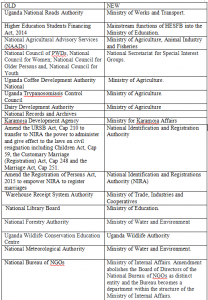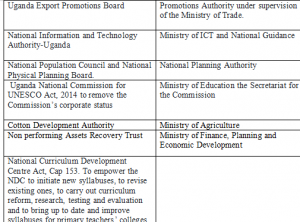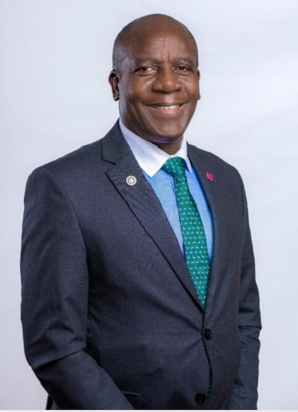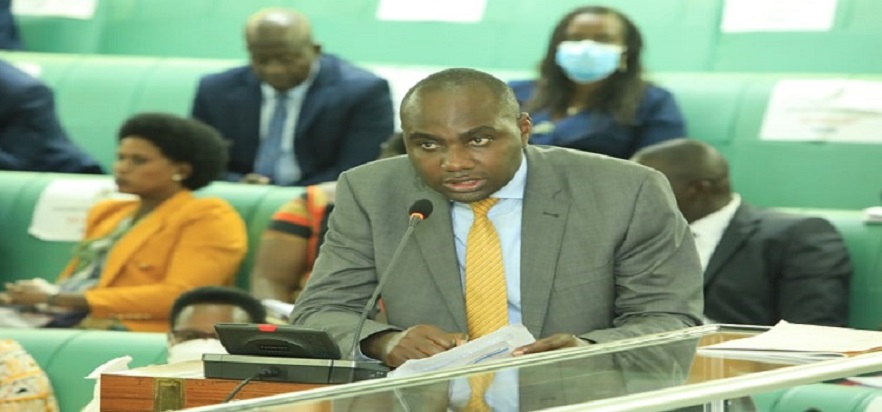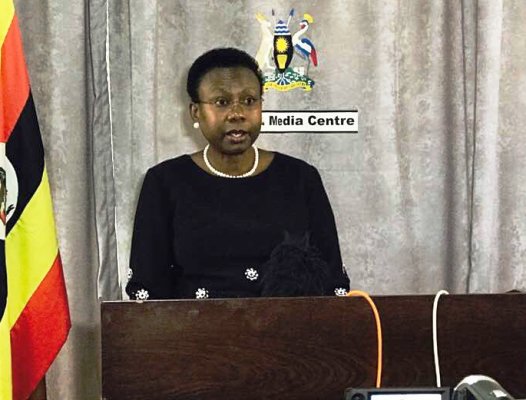Muruli Mukasa, Minister of Public Service
Parliament has blocked plans by Government to disband several public agencies including Uganda Coffee Development Authority (UCDA), Uganda National Roads Authority (UNRA), National Agricultural Advisory Services (NAADS) until the cost and legal implications of merging these agencies is well explained.
This followed an attempt by Deputy Attorney General, Jackson Kafuuzi to table the Constitutional Amendment Bill 2023 in which Government was proposing to amend the constitution to merge Equal Opportunities Commission (EOC) with Uganda Human Rights Commission, since the two entities were formed by articles in the constitution.
However, Kafuuzi’s actions were halted by Sarah Opendi (Tororo DWR) who protested the move by Government to move a constitutional amendment bill, yet attempts by several MPs to move similar legislations had been thwarted by Government under the pretext that there is need to establish a constitutional review commission to deal with wholesome constitutional amendments, instead of piecemeal amendments to the constitution.
Her concerns prompted Speaker Anita Among to task Muruli Mukasa, Minister of Public Service, to explain why Government had brought an omnibus The Rationalisation Of Government Agencies (Repeals And Amendments) Bill, 2023 at once instead of handling each agency separately, as this would ensure that each agency would be handled by its sectoral Committee, instead of having the scrutiny handled by one Committee.
“Government isn’t up to date with the RAPEX policy, you need to give us the cost implication, we need to look at the structural policy, the legal, the service delivery and then the implication on the multi-year commitment that we are going in. If you had brought them in a correct way, bring entity by entity so that we compare your report with ours; bring a bill of UNRA, you bring your proposal then we shall sort it out. But you don’t bring it omnibus. Omnibus will be handled by one Minister. We need to know the cost expenditure of the RAPEX policy, we need to look at legal, multi-year commitments that we are going on,” said Among.
The Speaker was backed by Eddie Kwizera (Bukimbiri County), who argued that the omnibus provisions can only be made when Government justifies the cost implications because not every person retired by law are compensated in time, and went on to cite examples of former workers of the East African Community and the other privatised agencies who were laid off but haven’t been paid their retirement benefits to date.
Kwizera said, “The omnibus and execution of rationalisation, it is the power of Parliament to actually make a law or repeal the law. This omnibus bill of about 40 clauses or Acts of Parliament, can only be made when the minister justifies the cost implications because not everybody retired by Government policy or law are compensated on time. The budget provisions for salary, gratuity statutory obligations like paying the debt is less than the money collected by this country, we are in a red mark.”
He added that when entities are rationalized and retrenched, the decision would impose a cost on Government’s pension budget, yet going by the trends, Government can’t sustain such an expenditure saying, “So they need to tell us that they are going to rationalize and so many people are going to lose their jobs and so much money will be paid and within which period instead of promising pension and gratuity which they will never get.”
Kwizera also warned that the Ministry of Public Service overseeing the rationalisation of agencies without the input of the other ministries is akin to Public Service hijacking other Ministries.
“The Minister of Public Service has taken over the Government meaning that all the bills will be handled by one Minister, that is irregular. So we need the cost implications and political implications because when the population is growing, services can’t be shrunk, we need these services,” added Kwizera.
Minister Muruli in response to the concerns raised revealed that the Ministry of Public Service had information on the cost implications on the impact of rationalisation as contained in the certificate of financial implication from the Ministry of Finance.
“That means we have taken cognizant of the cost implications of what we are going to do. I would like to say that this is the right moment, we shall consult further. Yes, there are many agencies involved unfortunately; there are various committees involved, and I think part of the answer on how we are going to address this was given by you, and given enough time, we can engage the various committees involved with each of these agencies and we come up and we debate this omnibus bill,” said Muruli.
Chris Baryomunsi, Minister of ICT and National Guidance defended the decision to bring an omnibus rationalisation bill on grounds that this isn’t the first time that Parliament is going to handle an omnibus bill and proposed to have the Bills referred to the Committee of Public Service and have the other committees pick their bits.
However, the Speaker insisted on having each agency handled separately.
According to Government, the policy behind the Bill is to give effect to the Government policy for Rationalisation of Government Agencies and public Expenditure (RAPEX) which was adopted by the Cabinet on 22nd February, 2021.
Government defended the merger of Uganda Human Rights Commission and the Equal Opportunities Commission stating that the work the two commissions are doing is similar, thus creating the need to avoid duplication of the roles and functions of the two commissions and to cut costs of administration.
“There is need to merge the Equal Opportunities Commission with the Uganda Human Rights Commission to form one commission that performs the functions of both commissions,” read in part the proposed bill.
Government also proposed to disband the Uganda Law Reform Commission as the body responsible for law reform in Uganda, and have its current functions performed by a department in the Ministry of Justice and constitutional Affairs instead of having a distinct commission.
Below are some of the agencies proposed for merging;
